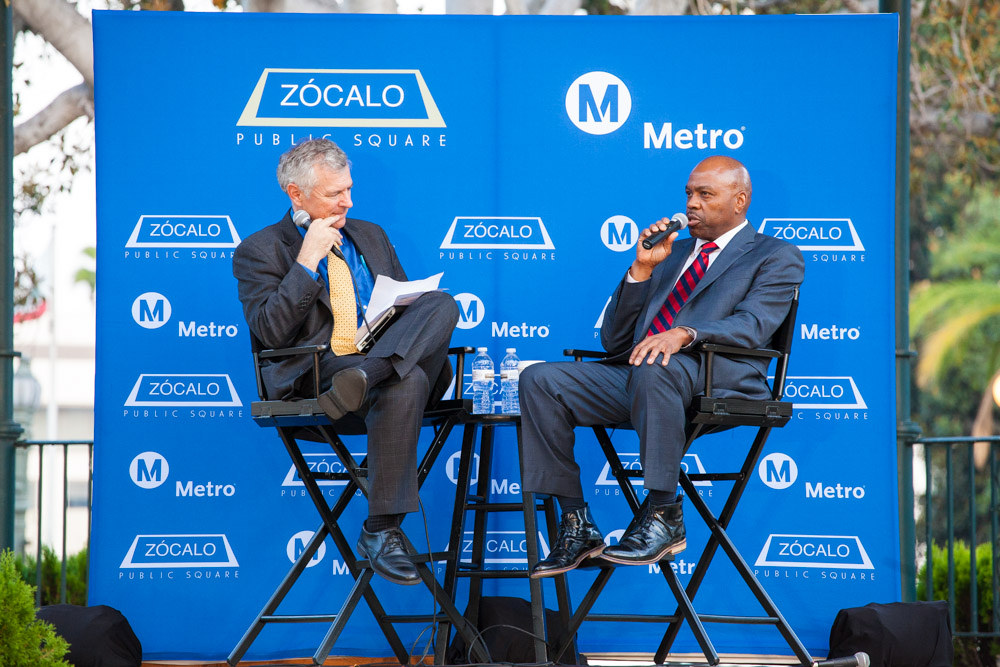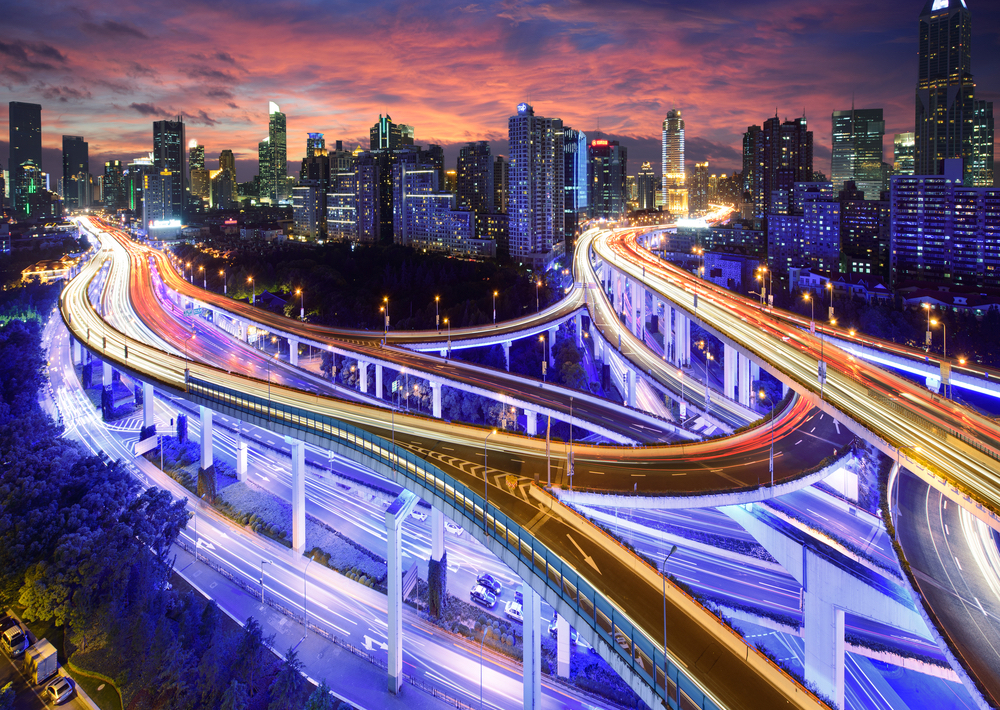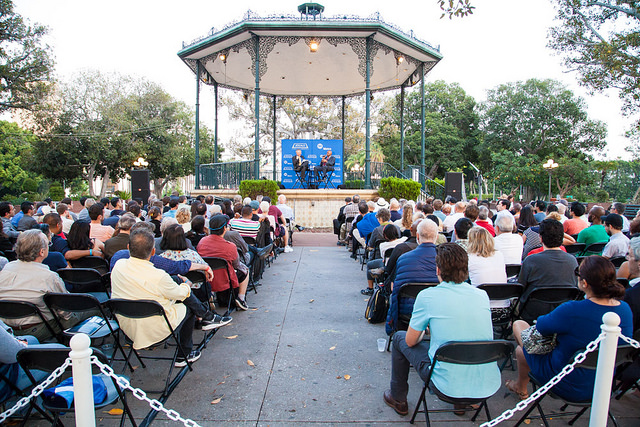
“Finish the job.”
That was the focused message of Phillip Washington, the new CEO of the Los Angeles County Metropolitan Transportation Authority (Metro), before a standing-room-only audience a Zócalo/Metro event at the Plaza on Olvera Street.
Washington, who came to Los Angeles three and a half months ago after years of heading Denver’s Regional Transportation District, spoke passionately about the need for Los Angeles to finish the build-out of its transportation infrastructure under Measure R—and for the country as a whole to devote far more attention and money to infrastructure.
To that end, he said Metro needed to leverage its assets and existing funding, and use more tools to complete projects faster. He mentioned in particular public-private partnerships, sometimes called P3s, in which private companies invest money upfront, assume the risks of the project, and are paid back over time. He noted that this approach could accelerate projects in L.A., and had been crucial to a rail project to connect Denver’s downtown and airport.
Washington also said he was starting up an Office of Extraordinary Innovation at Metro that would be “tasked with taking on and attacking the toughest transportation challenges in the region and implementing solutions.” He suggested the office could look at everything from automated or sensor-controlled cars to pods that could move individuals.
In response to a question from the evening’s moderator, NBC 4 reporter and News Conference host Conan Nolan (who declared himself a proud rider of public transit), Washington mentioned the half-century-long battle over what to do about the final extension of the 710 Freeway as one thorny challenge that could benefit from innovative thinking.
Innovation and flexibility in financing are more than goals—they are necessities, he argued, given the lack of financial commitment to infrastructure in the U.S. “We have to be innovative in the transportation industry now, because we’re not getting all the money we need,” he said.
Washington added that while Los Angeles County taxpayers had shown their commitment to infrastructure by voting for Measure R’s taxes and projects in 2008 (he pointed to Measure R when asked why he’d taken the job), Congress has repeatedly failed to pass legislation to maintain and rebuild the country’s aging roads, bridges, and other infrastructure. “Our infrastructure forefathers are turning over in our graves right now,” he said. “Because we have not taken care of the assets they have left us.”
He said that a commitment to infrastructure had to go beyond transportation to community building. He said that Metro had begun a pilot to look at property it owns within one-and-a-half miles of train stations or bus lines, with the goal of connecting those spaces to those communities. He also expressed concern about changes in cities that are pushing poorer people out of city centers, which can add to transportation costs as service must be built further and further out.
Pressed by Nolan on whether Metro fares should rise, Washington said, “our fares are some of the cheapest in this country” and quickly added that Metro also has “a very high percentage of low-income riders—I think it’s about 75 percent.”
Washington touched on dozens of topics in responses to Nolan and audience questions. Among other things, he indicated he supports the state’s high-speed rail project.
Asked by Nolan which of the five Metro rail projects currently under construction was a “game changer,” he mentioned the Regional Connector because it can connect existing lines and “open up economic development”; he suggested he was looking for ways to accelerate its scheduled completion.
In response to two audience members who complained about how security and sheriff’s deputies treat riders on the Blue Line, Washington said he had hired a new security chief at Metro and asked him to assess security throughout the entire system. He described security as one of several ways— including cleaner buses and rail cars, on-time buses, and technology—of “enhancing the customer experience” and convincing more people to use Metro.
In response to an audience question about the balance of bus and rail projects in a successor measure to Measure R on the 2016 ballot, he said Metro had asked local governments to prioritize projects by September 1. He said Metro has 2,300 projects it’s currently evaluating, worth a total of $250 billion.
Washington also praised the city of Los Angeles’ new Mobility Plan because it calls for more “balance” between different modes of transportation. Washington said that “we’re not going to get everybody out of their cars” but “we can hope for less driving.”
“This is an auto-centric country,” he added. “When you go to some places here in America, it’s like the Wild West. You pulled up on your horse, strapped your horse to the pole.” But in the long term, we should “wean ourselves” off the automobile.
When Nolan asked how he should be evaluated, Washington said he should be judged on whether Metro is completing projects on time and on budget, on the safety of the Metro system, and whether he is developing the workforce so there are more people properly trained and qualified to build infrastructure for the country’s needs.
Said Washington, “Years from now, I hope that our grandchildren will say of us, ‘That generation left us some great infrastructure that we need to take care of.’”






Send A Letter To the Editors